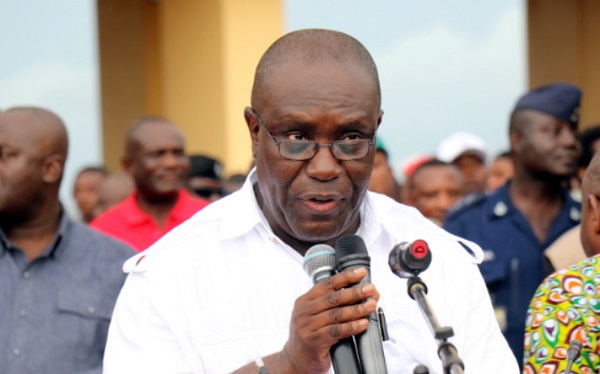- calls on employers to cushion workers
The Trades Union Congress (TUC) has bemoaned the effect rising inflation is having on workers’ salaries, saying employees are now the worst-hit by the current economic crisis.
This is because salaries were negotiated last July 2021 when inflation was 9 percent, but has risen to 19.4 percent at present. As a result, workers’ earnings have been completely washed away and they are struggling to keep up with skyrocketing cost of living.
“The situation is very bad. Prices of goods and services are going up, and so if salaries are not adjusted to reflect these phenomena, workers will continue to struggle,” TUC’s Secretary General, Dr. Yaw Baah, told the B&FT.
He spoke at a pre-May Day forum in Accra themed: ‘Protecting jobs and incomes in the era of the COVID-19 pandemic and beyond’, and urged employers – both private and public – to be sensitive to their workers plight in these difficult times.
“In July 2021 when we negotiated public sector pay for 2022, inflation was 9 percent. Today inflation is 19.4 percent and that is even the average, it is more than that if you go into details. Even prices of water have gone up by 27 percent,” he lamented.
He said the challenges currently faced by workers are dire, and that employers need to be flexible with their policy of fixing workers salary at the start of the year and not willing to sit at the negotiation table in the course of a year, regardless of prevailing market conditions.
“If your salary is determined in January and inflation goes as high as 19.4 percent in the first quarter, and until next January you will not get a salary increase, do you think that is fair?” he asked.
The TUC believes employers, especially those who produce and sell, must counterbalance the plight faced by their workers with adjusted salaries which reflect the current economic climate.
Don’t blame unemployment on COVID, Russian-Ukraine conflict
Among other things, Dr. Baah says it is entirely misplaced that government blames the poor conditions of service and worsening graduate joblessness on COVID-19 and the ongoing Russia-Ukraine war.
He said these were already prevalent before the advent of the pandemic and the conflict in Eastern Europe.
Explaining further, he said: “The job crisis predates covid and the Russia-Ukraine conflict. Therefore, we think it is not right to blame covid and the conflict for the job crisis we have here; we are not going to accept that”.
Way forward
Dr. Baah said his outfit has already begun conversations with employers on how to find lasting solutions to the predicaments faced by workers.
He, however, emphasised that if dialogue fails to yield the needed results, they will not hesitate to hit the streets, given the magnitude of the crisis.
“We abide by dialogue. We hardly want to strike because it is a very difficult thing to do – it is like war. And before we declare war on the employer, we have to make sure we have good reason and this time, we have a good reason.
Therefore, we caution that the employers must listen to us because the workers of this country are suffering too much, and we should not allow it to continue,” he said.
Employers, he stated, need to also be proactive by fast-tracking measures to lessen the impact of the crisis on workers: “If we negotiate 4 percent and 7 percent and inflation is now 19.4 percent, they should come out and tell us, ‘we know how you are suffering and, therefore, we want to adjust your working conditions’.”
Those who are in charge of the country must know that without workers, the country cannot progress; therefore, this is the time for them to do whatever they can to support us,” he said.










